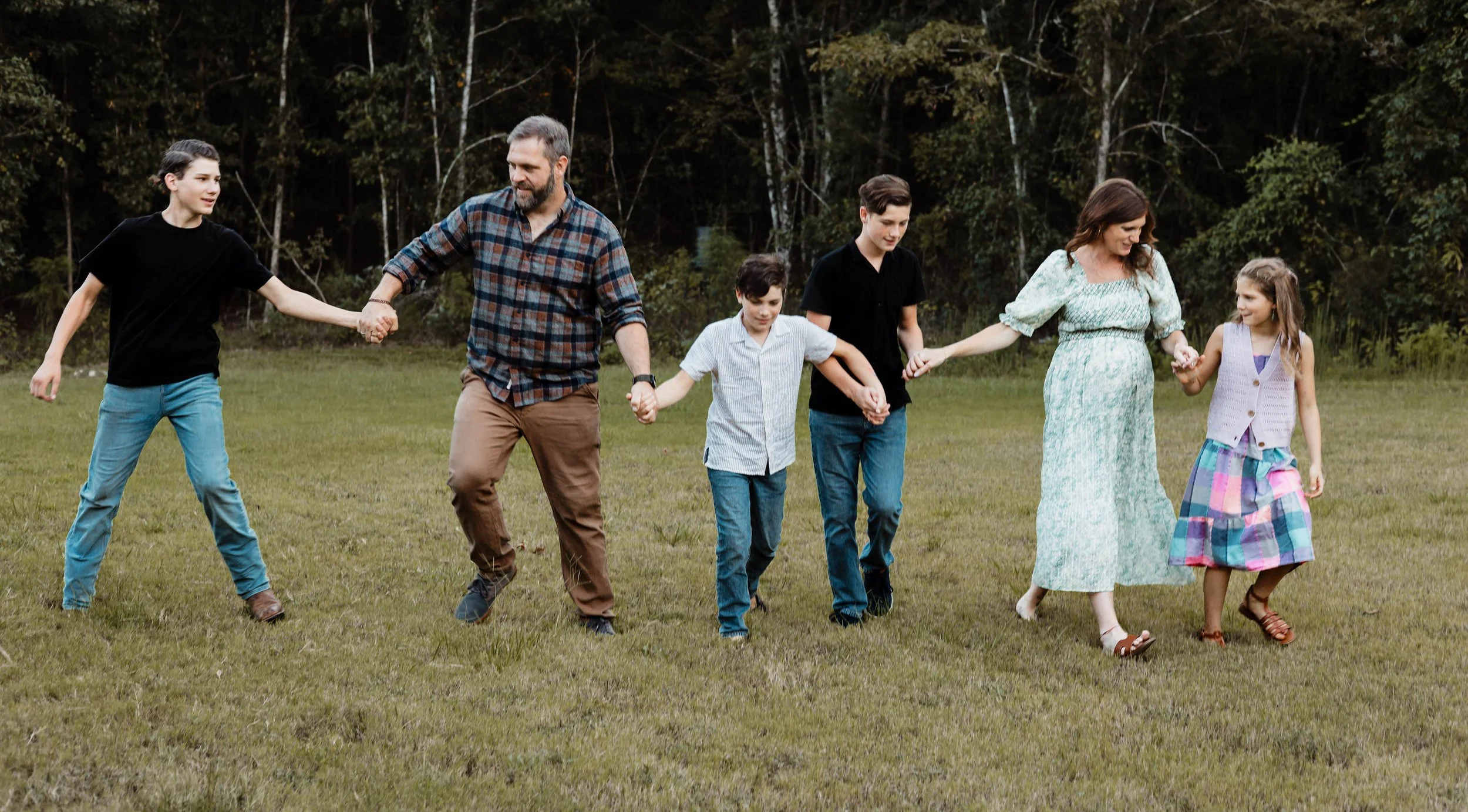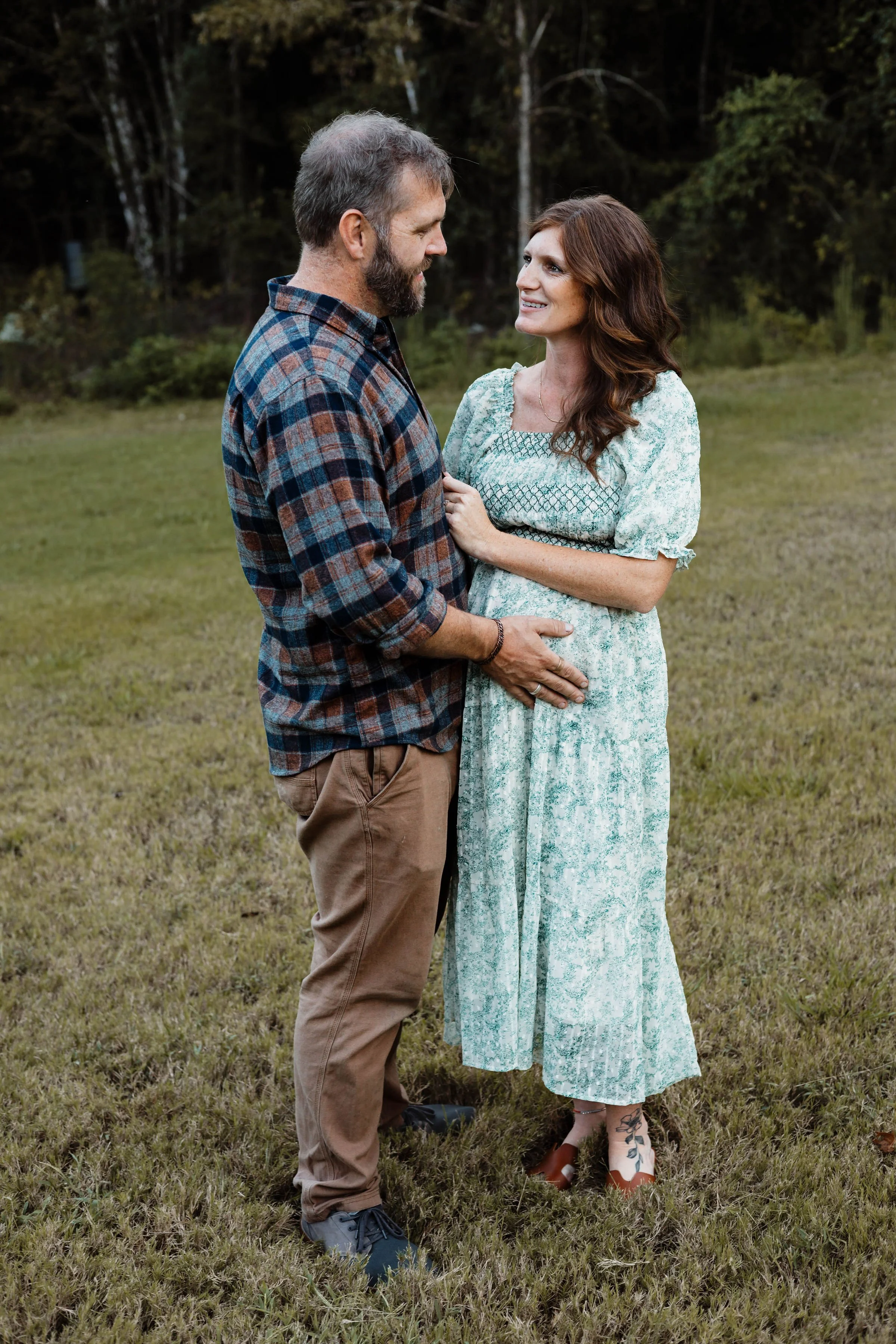Gentle ways I am preparing for baby [No. 5]
After years of watching my family grow, this fifth baby feels different. My youngest is almost ten, and I’m surrounded by the beautiful, noisy independence of teenagers. Truth be told, preparing for a newborn in this season of life isn't about rushing to finish a nursery; it's about a deep, slow re-shaping of our family life.
The temptation when preparing for a baby is always to get caught up in the stuff. But with four older kids and one on the way, I know the most essential preparation happens not in the closet, or the amount of baby toys, but in the heart and mind.
If you’re walking this unusual path of parenting two generations, here are the gentle ways I’m approaching this sacred transition.
1. Prioritizing rest
When you have a house full of people, "rest" feels like a luxury you can’t afford. But this time around, I'm treating it like a non-negotiable investment. Partly because my body physically needs it and another part because I have seen what rest can do for the body.
My energy is not just for growing this baby; it’s for showing up for two pree-teens and two busy teenage boys. I’ve learned that a burnt-out mama serves no one well.
Rest comes in many forms, some of them for me in this season is handing off a few things that would normally sit on my to-do list. Or even things I would normally do more of like bake or do big room makeovers, or go to the grocery store. Where I can, I say “maybe not today” or use amazing apps like Instacart to have groceries delivered. It’s not about becoming one with the couch and just choosing to be lazy, it’s about choosing to do the things I need to do, and do them well, all while finding balance in saying “no” when needed.
2. Intentional conversations with my older kids
The pregnancy 10 years ago was met with little siblings who were already used to sharing me. Now, I’m navigating the complex emotions of teens who have known life without toddler interruptions or who have been firmly established in their roles.
Our conversations have been focused on three key areas:
Logistical prep: We talk about the reality of a newborn. I’m honest about the noise, the need for quiet times, and the times I will be unavailable. This manages expectations now, in hopes of preventing resentment later.
Example: I have a music lover and drum player, and to help with this transition I say things like: "I love that you want to practice your drums so often, but let’s remember that when sister is born, playing them while she is taking her nap may not be the best time for that. How about you think through parts of the day that would be optimal for you to practice your drums so you don’t loose your practice time."
A new role of the "big" sibling: We’re explicitly talking about how this baby is their baby, too. I’m asking them to brainstorm the things they are uniquely qualified to do. I don’t want them to see having a new baby sister as a chore, but instead think of things that could help them build a special bond.
Examples: Reading a board book, choosing the baby’s going-home outfit or in our case helping me find thrifted baby clothes, or simply holding the baby for a few minutes while I shower. This gives them ownership, not just responsibility.
Validating the transition: I’m making space for them to talk about any worries, jealousy, or sadness. It’s a loss of the family they knew, and we need to honor that before celebrating the gain. And this process is also about reminding them that while things are going to change, they will also be very beautiful. We are not just adding a crying baby to the mix, we are adding a blessing, just as each of them are blessings. I believe that the more we talk about the transition, expectations, and feelings the better set up we will be when baby arrives.
3. Intentional decluttering and nesting
With a new baby, you don't just need a space; you need mental bandwidth. My decluttering this time is less about perfection and more about creating easy systems.
Creating "Newborn Hubs": Instead of focusing hard on a nursery [which is a shared room with her older sister], I'm setting up three minimal stations in the main areas of the house:
The diaper caddy or drawer: A simple basket with diapers and wipes in the living room [I did this with my now 10 year old and it was a game changer for me, I’ll never go back!]
The feeding hub: A designated comfy chair with a water bottle, maybe some snacks, and phone charger in my room.
The postpartum basket: a basket/caddy full of the things I will be needing or wanting postpartum. Some of these include tinctures for recovery, nursing pads, electrolyte packs, haakaa, and magnesium butter.
4. Preparing the mental load
This is perhaps the most critical difference from my first pregnancies. I know what the mental load of motherhood entails, and I'm actively trying to reduce it before the baby arrives.
Meal prep, simplified: I’m stocking my freezer [stocking may be to rigid of a word, I am working on putting away some easy to make meals] not with gourmet meals, but with a few things that can make life easier post baby. The goal is to make survival-mode cooking as easy as possible.
Unplugging the guilt: I am practicing releasing the expectation that I need to be a fun or perfect mom right away. Even working on releasing how I need to show up for everyone else in my life. I can very easily put expectations on myself of what I think others expect of me and I am aware of them this time around. My goal is to be a present and peaceful mom. That is enough.
Bringing a new life into a family that's already vibrant and established is a profound experience. It’s a chance to apply the wisdom you’ve gained over the last decade, and to intentionally welcome this new era of beautiful chaos.
How are you preparing your heart and home for the next chapter? I'd love to hear your gentle prep strategies in the comments.





